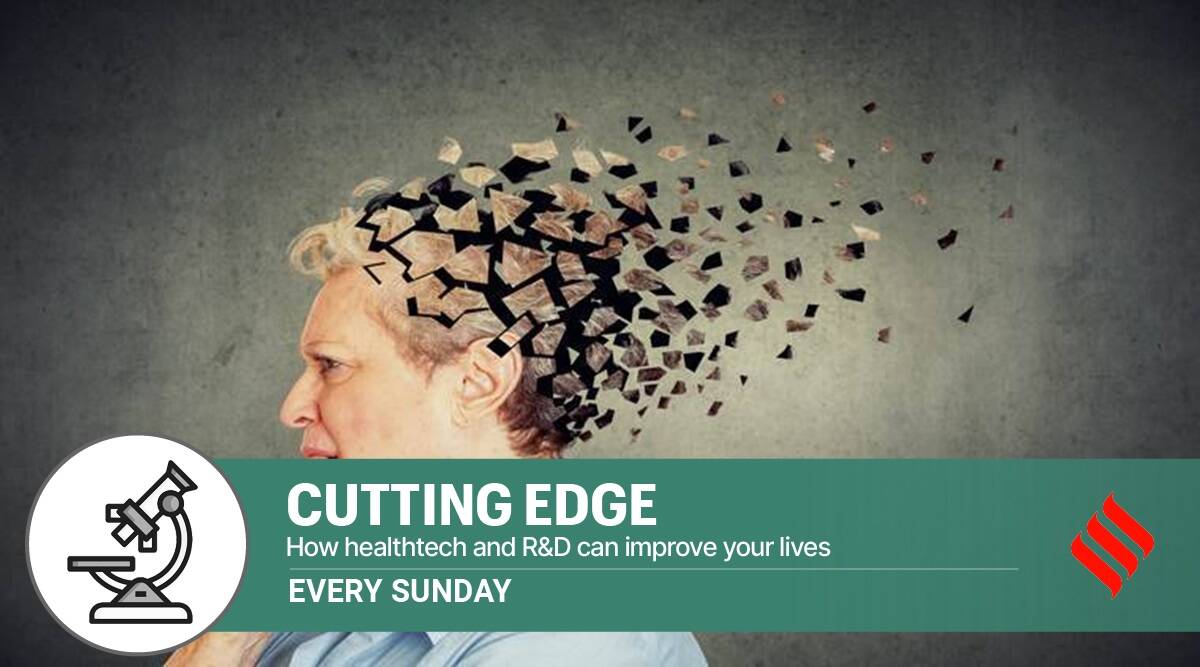Can a simple blood test hold the key to detecting Alzheimer’s?
12 January, 2023

Can a simple blood test coupled with a short neuro-psychological check diagnose Alzheimer’s? Can taking a daily supplement prevent cognitive decline in those with early stages of the disease?
A researcher from the National Brain Research Centre’s sprawling campus in the foothills of the Aravalis is trying to answer these questions with a specialised MRI machine. Unlike the ones seen in tertiary care hospitals, this one can not only photograph the brain but differentiate between chemicals present in it and compounds it absorbs. And it has helped Dr Pravat Mandal figure out a relation between a naturally-occurring antioxidant called glutathione and iron levels in our blood and brain. “It is not like any other MRI machine – we have trained it in a way that it can detect chemical compounds in the brain that have a different frequency. Once we know this frequency, we can focus on it and only that compound will be visible. Using this technique, we have been able to measure the glutathione levels in the brain of healthy participants and those with Alzheimer’s,” says he.
In addition, this MRI machine can also detect the difference in the texture of brain tissues that have absorbed iron. Why is this important? Dr Mandal, who is an engineer by training and went on to work in the radiology, anaesthesiology and psychiatry departments of reputed American institutes, has a hypothesis. He believes that the levels of the antioxidant glutathione and iron in critical parts of the brain are predictors of Alzheimer’s. “When we go about our day to day lives, we create free radicals in our brain. Our mood, lifestyle, what we eat and the kind of air we breathe all determine the level of free radicals generated. Now, the body has a natural mechanism of neutralising these free radicals with the antioxidant glutathione. An imbalance between the levels of iron — which is a free radical generator – and the levels of glutathione is likely one of the causes of Alzheimer’s disease,” says Dr Mandal.
His team has already shown the difference in levels of iron and glutathione in the hippocampus of healthy individuals and those with Alzheimer’s. In fact, his research is among those that challenge the theory of the deposition of amyloid beta protein as the cause of Alzheimer’s. He instead considers these depositions as a symptom of the neuro-degenerative disease. “If we liken Alzheimer’s to the river Ganga, researchers thought that amyloid beta protein deposition was Gangotri when in reality they probably were at Kanpur or Haridwar. We still have ways to go before we reach Gangotri or the origin of the disease,” explains Dr Mandal.
How then does his research lead to development of a treatment or diagnostic for the disease? Keeping in mind this theory, Dr Mandal started imaging the brains of healthy subjects and conducting blood tests at the same time. As yet unpublished results of this study of 70 healthy subjects have helped him establish a baseline of the iron and glutathione levels in the brain as well as the blood in different age groups. Comparing this to the declining glutathione levels and increasing iron levels in the brains of Alzheimer’s patients can help create a scale for detecting the disease.
“My previous study showed that unlike healthy subjects, there is a decline in the glutathione levels and increase in iron levels in the brains of those with mild cognitive decline and Alzheimer’s but at the time, we have not tested the blood of the subjects. Now, we have the data from healthy individuals and a simple trial to do the same in Alzheimer’s patients will help us develop scale,” said Dr Mandal. Once this scale is developed, a simple blood test done even at basic laboratory set-ups can predict the disease, and coupled with a neuropsychological test, can be used to determine early whether the person has the disease.
The tests to determine the cognitive functions in a patient are done even now to determine whether a person might have the disease. But several tests are also needed to eliminate other possibilities for such a cognitive decline. This new method may simplify diagnosis. Doctors can sometimes suggest an analysis of the cerebrospinal fluid or brain imaging to detect the amyloid beta protein depositions that are a marker of the disease.
Keeping in mind the same principle, Dr Mandal hypothesizes that taking daily supplements of glutathione – which is already marketed as a nutraceutical – can help prevent a slide in patients with mild cognitive decline. A trial will be conducted with AIIMS.
Useful Links:
Source: indianexpress.com
